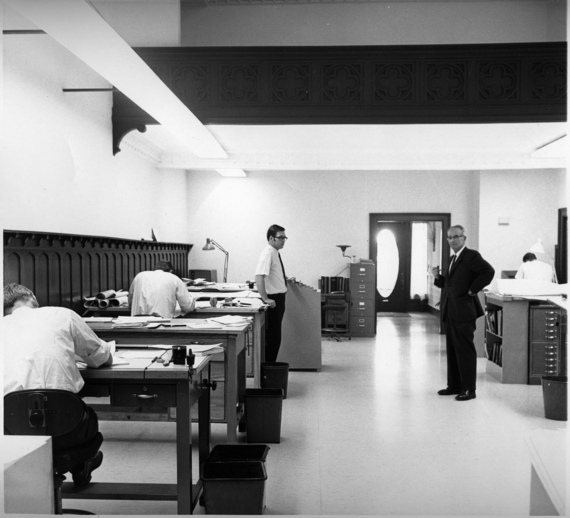All of us want to believe we are contributing more meaningfully to the real challenges in society, and often in the corporate world it's hard to see that connection -- which is why many people (including you, perhaps?) often think of leaving it.
This year I'm researching and designing a new venture. One of the goals is to create a company that intrinsically ties every employee's role to impact, meaning and a social cause that is bigger than them, and far bigger than the company.
For many reasons, it is perhaps harder to find that connection in a large corporate than in a smaller, more entrepreneurial start-up, which often has a wild mission that is being passionately pursued. One world appears inherently safer -- more predictable, stable and structured - but can be harder to connect personal meaning to. The other can be unpredictable, messy and appear risky, but is often thrilling, with greater personal meaning, and is a world in which every person has a huge impact on their far smaller environments.
How do you move from "safety" to start-up?
First, let's define safety and danger. I believe that the most dangerous thing people can do is not take risks.
Life without taking chances and opportunities will lead to dullness, repetition and stunted growth, holding us back from limits we might previously have believed we had.
One way to move is to look for new types of roles that bridge the gap, and I think I just created a job that does exactly that. Before I can start intensely focusing on designing the new organization I mentioned, I decided over the summer in New Zealand recently that the first thing I needed to do was to hire a key person back home. Their task: to run with the various ventures-in-incubation and investments I've been stewing on there, as well as finally drive strategy and execution of a charitable foundation I have long been meaning to start.
Thinking about how to find such a person who would take on both agendas -- to unite them, and make sure that they drive each other, I suspected they'd already have those yearnings to have a bigger impact than where they possibly are sitting right now. This would be a fantastic opportunity to sneak away a young, purposeful, bright rising star away from the corporate, finance or strategy world before they were converted to lifers.
I have nothing against the corporate world -- I've sold things to it, been in it, had a company bought by it, then worked for it, and I'm even on the Board of it. I do however think there can be a lot more adventure outside of it, and it's well worth discovering what that might be.
The campaign -- #theshouldertap -- is based on the idea that we all know somebody amazing who is maybe not quite being used to their best potential for the world. We created it in the hope that it would perhaps trigger people in cubicles, glass boxes and offices across New Zealand (and perhaps the world?) to think: How am I spending my days? How am I spending my time? Are all these amazing skills, experiences and energy that I have really best served in the company that I'm in?
What this campaign is trying to say about the careers of tomorrow is that we need to integrate how one career is positive for people and our planet, not just positive for profits.
It seems that it's resonating, because amazing people from Qatar to Colorado and from Slovenia to Singapore have applied.
Today's norm might be that you go to work to make money and build a career, and have a set of extracurricular activities where you might do 'good' in the world -- volunteering, or sitting on boards of a non-profit. The fact that the two aren't linked is probably a root cause of much employee dissatisfaction.
We need to change that norm of appending the "doing good" part to a career, towards making it intrinsically part of it. So that when you go to work at a big company or a small one, you are doing something that creates value, creates jobs, creates wealth -- but also clearly solves issues that you might be facing in your community, or your country or our planet.
So where do you start if you dream to leave the safe corporate world? Well, maybe you want to drop everything and move to New Zealand for a job that wants to start a movement -- or maybe you might know somebody who does! If so, "shoulder tap" them at www.theshouldertap.com.
This post originally appeared on LinkedIn.
If you enjoyed this post, check out my book 'Heart to Start', follow me on Twitter, or sign-up to my email list.
